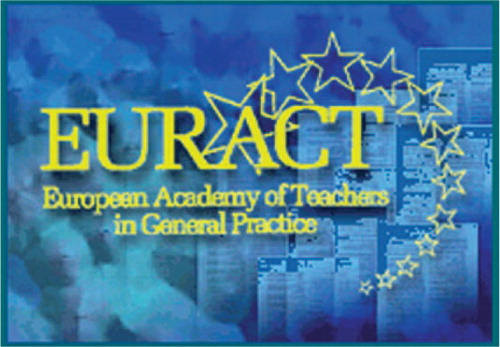
THE EURACT PERFORMANCE AGENDA (EUPA)
The EURACT Performance Agenda (EUPA) of the European Academy of Teachers in General Practice/Family Medicine (EURACT) is the third paper in a row, following the European definition of general practice/family medicine (Wonca Europe; 2002)—identifying six core competencies and 11 abilities every family doctor should master—and the EURACT Educational Agenda (2005), providing a framework for teaching the core competencies by setting learning aims and monitoring their achievement.
Performance (in contrast to competence) is understood as the level of actual performance in clinical care and communication with patients in daily practice. Small groups of EURACT Council members from 40 European countries have discussed and developed EUPA over the years. EUPA is a general uniform basic agenda of performance elements for every GP masters in daily practice, applicable and adaptable to different countries with different systems. It deals with process and result of actual work in daily practice, not with a teaching/learning situation. EUPA discusses in depth the psychometrics and edumetrics of performance assessment. Case vignettes of abilities in GPs’ daily practice in every chapter, illustrate performance and its assessment. Common assessment tools are, e.g. workplace-based assessment by a peer, feedback from patients or staff and audit of medical records.
EUPA can help to shape performance assessment activities locally in general practice/family medicine, e.g. in continuing professional development cycles, re-certification/re-accreditation/licensing procedures, peer hospitation programmes or practice audit programmes in quality management. It can give orientation for self-assessment for reflective practitioners in their continuing professional development.
EUPA encourages general practitioners to initialize performance agendas adapted to their national health system to strengthen further the role of general practice/family medicine in their country.
EUPA was presented to the public for the first time at the 19th Wonca Europe Conference, on 5 July 2014 in Lisbon, Portugal, in a EURACT workshop by Stefan Wilm, Janko Kersnick, Francesco Carelli and Jan Degryse. The workshop will be available in a printed version and as an open access source. Groups were asked to answer a series of questions and the plenary involved a request for one-word answers to these questions. Answers are summarized below:
Starting in your practice next Monday morning, how do you feel about being assessed? ‘Nervous, why me, anxious, terrible, irritated, afraid, hate, I will show them, that is OK, welcome, curious, lucky’.
Who will assess you? ‘Peer-accredited, tutor or instructor, trainee, trainer, self, patient, medical director or staff, e.g. nurse’.
What assessment method? ‘Simulated patient, case review, medical record review, direct observation—sitting in, video’.
Who might be interested in the outcome of the assessment? ‘Self, patients, management, employer, regulator, managed care manager, quality control authority, government, insurer’.
Who might pay for this assessment? ‘Pro bono, health organization, government, self’.
The participants were positive about the prospect of assessments as long as the process was a formative one and peer led.
